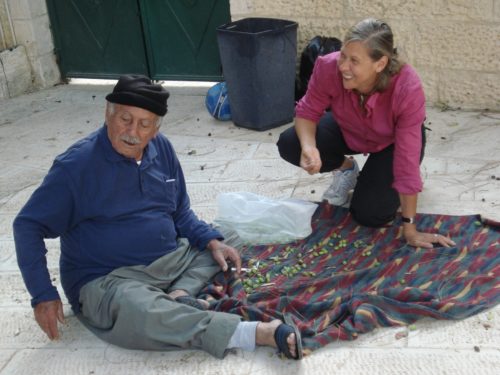Can culture be taught?
A humble reflection stemming from my experience with intercultural training.
I practice Linguistic Empathy and I expect you to do the same. Please bear with me if my English is not perfect. Read the Italian version here.
I still remember when I received the material for my first intercultural training in Peru. I had recently graduated in Cultural Education and Pluralism and I had followed a five-day in person training in Amsterdam. It was through that network that I was put in contact with an agency that needed to train a manager going from Ecuador to Peru. My first client 😃
I had never done an intercultural training before, but they reassured me: they would send me all of the material I needed. When I received two thick printed books and went through them, I was a bit stunned: I had not expected to find such a detailed series of guidelines and of givens on the Peruvian culture that I had to “teach” reading this book. The question came spontaneously to mind: Can culture be taught?
 At that time I had very little experience of intercultural training, but I had already accumulated quite a number of years living in different cultures. I knew what exposure to difference does to you.
At that time I had very little experience of intercultural training, but I had already accumulated quite a number of years living in different cultures. I knew what exposure to difference does to you.
As years went by and I moved from Peru to Jerusalem and then to Indonesia, I became a more experienced trainer, but I always found it a bit difficult to master the fragility of really getting to the core of training someone in “culture”. Every client was a different experience, and with every training I discovered something of myself, of my culture and of the culture I was supposedly “teaching”, plus something of the culture my clients came from.
It was perhaps this last aspect to leave a stronger mark in me when I was training on Indonesian culture – i.e. putting tags and definitions of behaviours to some of the Indonesian values I had come in contact with and I knew about. I observed the reactions of my clients, listened to the comments, welcomed their questions, and it was through all of these that I realised a lot about their culture.
 That made me think: how do we elaborate the perception that comes from our cultural minds, beings and experiences and turn it into valuable hints for someone who wants to get close to that culture?
That made me think: how do we elaborate the perception that comes from our cultural minds, beings and experiences and turn it into valuable hints for someone who wants to get close to that culture?
As intercultural trainers, we have a huge responsibility. It’s not so bad if we tell our clients something about the culture that in the end will not turn out to be true to them or not to be in line with their personal experience. What is more serious is to lead clients into thinking that culture can be taught and that we’re going to give them the definitive entry key that will help them come to terms with the intercultural differences they are going to face in the new country.
In my opinion and experience the right angle is to simply admit that culture cannot be taught, but that we, as trainers, are in a position to transmit what that culture has taught us, and what that culture has done to us starting from our cultural frame.
 As intercultural trainers we have a wealth of examples that we can convey to our clients. What we can do is lay out our intercultural experience in front of the clients, tell them how we felt about it from our cultural perspective, what the average reaction has been to that experience from different intercultural perspectives, ask them how they would react to such an example from their cultural frame.
As intercultural trainers we have a wealth of examples that we can convey to our clients. What we can do is lay out our intercultural experience in front of the clients, tell them how we felt about it from our cultural perspective, what the average reaction has been to that experience from different intercultural perspectives, ask them how they would react to such an example from their cultural frame.
Last but not least, we can encourage them to resort to the general tools we have gone through together at the beginning of the training and find the most suitable one to get out of the situation in a respectful and satisfying way.
I shiver when I hear “Indonesians are like this” or “Swiss are like that”. No. What you can possibly say is “I am like this and this is what the experience with Indonesians has taught me”. You will do cultures a huge favour.

